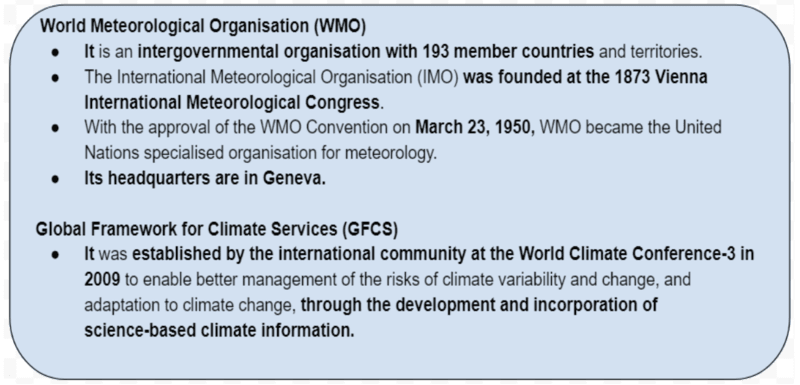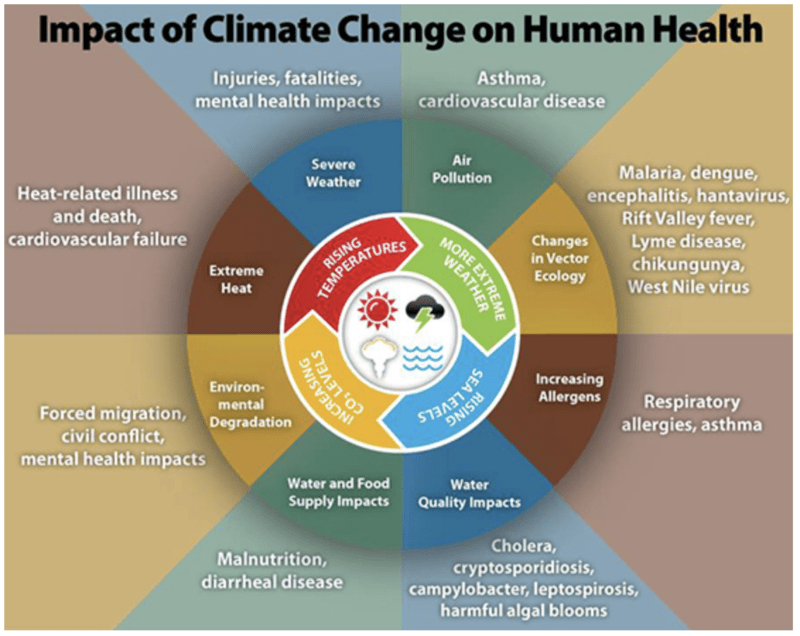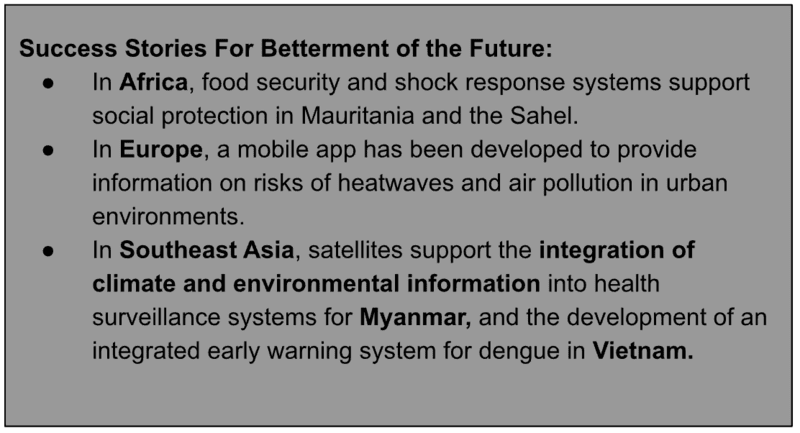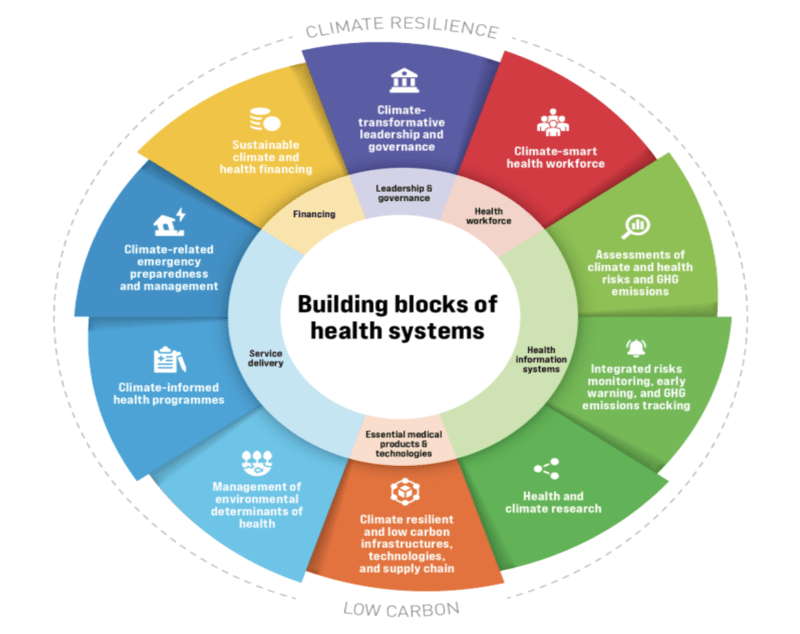GS Paper III
News Excerpt:
The World Meteorological Organisation (WMO) in its Annual State Of Climate Services Report has warned that the world is warming at a faster rate.
About the Report:
- WMO has issued annual reports on the State Of Climate Services since 2019 to provide scientifically based information to support climate adaptation and mitigation.
- This 2023 edition of the report focuses on health, one of the priorities of the Global Framework for Climate Services (GFCS) and a top priority for countries in their Nationally Determined Contributions.

Highlights of the Report:
- The world is warming faster than at any point in recorded history.
- The changing climate undermines health determinants, things like air quality, water quality, food security, shelter, economics, livelihoods, equity and access to healthcare, and social support structures that are necessary for maintaining good health.
- Such increasing pressure on health systems threatens to reverse decades of progress to promote human health and well-being, particularly in the most vulnerable communities.
- 50% of future excess mortality from climate change is projected to occur in Africa.
- Better climate information and services are therefore needed to better understand how and when climate extremes and a changing climate can impact health systems and to manage climate-related risks better.
- Health protection should be a priority in almost all countries and requires high-quality information to better inform decision-making.
Impact of climate change on health:
- Spread of Diseases: With the increase in global temperatures, the suitability for spreading infectious diseases such as dengue and malaria is rising.
- Between 1951–1960 and 2012–2021, the climate suitability of dengue transmission rose by 12% and malaria transmission increased in the highlands in the Americas and Africa, by 31.3% and 13.8%.
- Food insecurity: It is exacerbated by the increasing frequency of heat waves.
- In 2012-2021, 29% more global land area was affected by extreme drought for at least one month per year than in 1951–1960.
- 98 million more people with moderate to severe food insecurity in 2020 than in the previous 30 years.
- Air Pollution and Heat Waves: Vulnerable populations are facing increased exposure to extreme, life-threatening heat and millions die from air pollution every year.
- Between 2000 and 2019, estimated deaths due to heat were approximately 489,000 per year, with a particularly high burden in Asia (45%) and Europe (36%).
- Heatwaves also exacerbate air pollution, which is already responsible for an estimated 7 million premature deaths every year and is the fourth biggest killer by health risk factor.
- Only 2% of climate finance commitments made by international development funders in developing and emerging countries are explicitly aimed at tackling air pollution (in 2015-2021).
- Effect of El-Nino: The onset of El Niño in 2023 will greatly increase the likelihood of breaking temperature records further, triggering more extreme heat in many parts of the world and the ocean.
- Labour Productivity: 470 billion potential labour hours lost globally in 2021 due to heatwaves - a 37% increase from 1990–1999 USD 669 billion potential loss on income in 2021.


Way Forward:
- Despite the recognition of health in Article 4 of the UNFCCC, for the first time in the UNFCCC process, a health programme was promoted in 2021.
- WHO launched the Alliance for Transformative Action on Climate and Health (ATACH) which brings together 70 countries that have made commitments at the Health Minister level to strengthen climate resilience and/or reduce the greenhouse gas emissions associated with their health systems.
- Due to increased weather-, climate- and water-related health hazards, the health sector will increasingly need reliable and robust information services to strengthen its resilience to climate change and variability.

- Integrated and applied climate products, services and systems that are robust and tailored can enhance the evidence and information available to health partners to detect, monitor, predict and mitigate climate-related health risks.
- Climate services for health help the health sector become smarter and more agile in an uncertain and increasingly extreme climate.
- These are “the entire iterative process of collaboration between relevant multi and trans-disciplinary partners to identify, generate and build capacity to access, develop, deliver, and use relevant and reliable climate knowledge to enhance health decisions”.
- Despite the recent growth in policy engagement, there is still room for improvement in ensuring the health sector is fully aligned with national climate responses. To fully harness the potential, transformational change in institutional development and integration across the health and climate sectors are needed.
